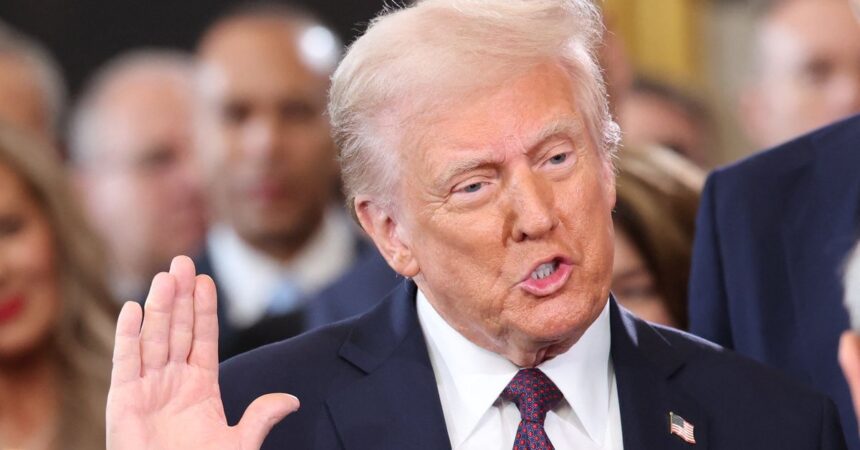President Donald Trump has once again made the controversial decision to withdraw the United States from the Paris climate accords, signaling a significant shift in the nation’s approach to combating climate change. This move comes as a blow to global efforts to reduce carbon emissions and mitigate the impacts of global warming.
In his announcement on Monday, Trump outlined his plans to halt the federal government’s efforts to meet its emission reduction targets, a move that is expected to be formalized through an executive order. This decision will align the U.S. with only a handful of countries, including Iran, Libya, and Yemen, that are not part of the Paris Agreement.
The process of withdrawing from the Paris Agreement is set to proceed swiftly this time around, with the U.S. likely to complete its exit within a year. This stands in stark contrast to the three-year timeline it took for the U.S. to withdraw under Trump’s previous administration, allowing President Joe Biden to quickly rejoin the agreement.
The decision to leave the Paris Agreement has drawn criticism from environmental advocates and experts, who warn of the detrimental impact on global efforts to address climate change. Kaveh Guilanpour, from the climate group C2ES, expressed deep regret over the U.S.’s withdrawal, emphasizing the negative consequences for both the environment and the country’s future prosperity and security.
The Paris Agreement, signed in 2015, aimed to coordinate international efforts to reduce greenhouse gas emissions and curb global warming. However, challenges in meeting emission reduction targets have persisted, particularly in securing funding for clean energy development in developing nations.
Since joining the agreement, China has emerged as a leader in renewable energy production, while the U.S. has made strides in investing in clean energy technologies. However, Trump’s administration has signaled a shift towards prioritizing fossil fuel production, with plans to boost oil and gas extraction and limit the development of renewable energy sources.
Despite these challenges, there are ongoing efforts to promote renewable energy and nuclear power as part of the transition to a low-carbon economy. Chris Wright, Trump’s nominee for the Department of Energy, has pledged to support renewables and nuclear energy as part of the administration’s energy strategy.
Critics of the Paris Agreement argue that it is too focused on abstract goals and fails to address practical concerns, such as infrastructure development in vulnerable regions. Some experts have called for a reevaluation of the agreement, suggesting that developing countries should prioritize investments in essential sectors like energy, agriculture, and infrastructure.
As the U.S. embarks on its withdrawal from the Paris Agreement once again, the global community is left to grapple with the implications of this decision on climate action and the future of environmental sustainability.







